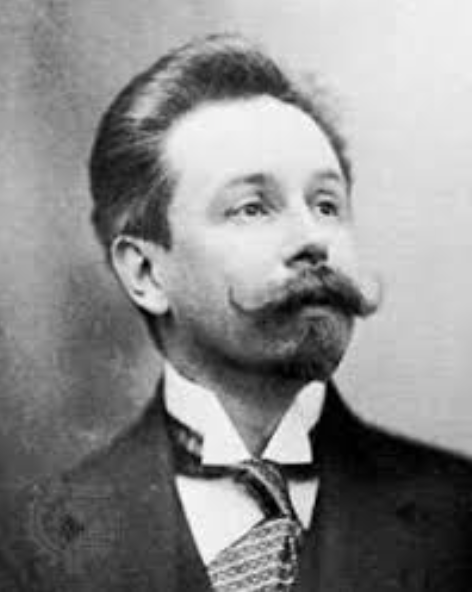Alexander Nikolayevich Scriabin (Russian: Александр Николаевич Скрябин) was one of Russia’s most prized pianists and composers. His early works were influenced by some of the greatest composers to have ever lived, such as Chopin and Tchaikovsky. In turn, he became an influence to great composers after him, such as Rachmaninoff and Stravinsky.
Although he was one of the most popular composers of his time in Russia, standing alongside Tchaikovsky, Rimsky-Korsakov, and Rachmaninoff, who was Scriabin’s classmate and closest friend, Scriabin was never able to rise to fame in the outside world until recently.
Scriabin’s importance in the Russian musical scene declined drastically after his abrupt death from blood poisoning in 1915. Scriabin’s Chief Biographer, Faubion Bowers even stated, “No one was more famous during his lifetime, and few were more quickly ignored after death.”
Today, Scriabin’s music has resurged, largely thanks to the efforts of one esteemed concert pianist by the name of Valdimir Horowitz who reintroduced Scriabin’s music to the world starting in the 1970’s. As Horowitz, who is regarded to be one of the best pianists of all time, incorporated Scriabin’s first, 11th, and 12th etudes (an etude is a short musical composition, usually played by one instrument, designed as a piece to exercise the musicians technique) into his repertoire, more pianists started to follow his example. Scriabin’s fifth sonata and his 12th etude are staples in the repertoires of modern day concert pianists.
Even WIS IB music students were unaware of Scriabin. Jonathan Baunsgaard and Siddharth Kalra, who are very involved with music but are importantly not piano players, showed that these two individuals had never heard the name Scriabin before. However, 11th grade student Michelle Hobdari, a pianist, went as far as stating, “I think that since his music was heavily Chopin influenced.”
Historical Background:
As a child, Scriabin began taking piano lessons with Nikolai Zverev, who was also the teacher of Rachmaninoff and other piano prodigies. In 1882, he enlisted in the Moscow Cadet Corps but was exempt from the physical exercise there because of his scrawny figure. Instead, he devoted his time to practicing the piano.
After his time at the Cadet Corps, where he developed his technique, Scriabin was accepted into the prestigious Moscow Conservatory, where he began to acquire a reputation as a noted pianist despite his small hands, which could barely reach a ninth on the piano. Scriabin graduated from the Conservatory in 1892, and in that very same year he composed his first sonata. Piano Sonata No.1 in F minor resembles Chopin’s style of playing with grandiose octaves accompanied by scaling chords and a suave mazurka like melody.
The development of Scriabin’s style can be depicted accurately through his 10 piano sonatas that were written over the course of 21 years. His first four sonatas resemble Chopin, Tchaikovsky and sometimes Liszt’s mannerisms which all resemble the late romantic era style of music.
His style evolved extremely rapidly compared to other composers and in just a couple of years Scriabin had found his true style, which Bowers describes as having,“unusual harmonies and textures.” This comment becomes evident when you listen to Scriabin’s Piano Sonata No. 5 (1907), Piano Sonata. No 9 (1913), and his Etude No. 12 in D-sharp minor (1894), despite it being written earlier in his career. The left hand plays in absolutely no accordance with the octaves played by the right hand, and there are all sorts of melodies and harmonies that just sound off but these weird sounding melodies and harmonies are what truly make the piece as elegant as it is.
Why Scriabin’s popularity declined after his death is still a mystery, however, students, historians, and musicians have varying views on the matter. “Scriabin’s works might have been popular in his own time and simply ignored after his death,” Hobdari said. Kalra implied that perhaps other composers that came directly after Scriabin overshadowed his music. Although there are multiple explanations of why he was forgotten there is no doubt that he is still not widely recognized by the general public.
Next time you’re in the car, or when you’re feeling in the mood for late classical/romantic era music, play some of Scriabin’s pieces; You just might like it.
By Rauf Hürcan
































































